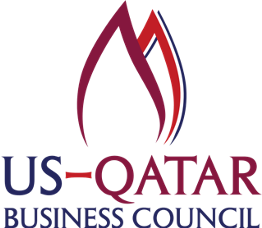Qatar's Tech Sector

9.2%
Expected compound annual growth rate of ICT spending in Qatar
40th
Rank of Ooredoo in the top 50 Global Telecommunications Brands
About Qatar's Tech Sector
Qatar’s Information and Communications Technology (ICT) sector added 1.4% to the country’s GDP in 2018, which is roughly $2.7 billion. This is a gain from 1.6% of GDP/$2.6 billion the 2017. The Qatari government has set up initiatives such as the Smart Qatar Program, which looks to create jobs and growth in the ICT sector. The Smart Qatar Program focuses on implementation of smart technology in five areas: transportation, healthcare, logistics, environment and sports. By 2022, over 100 projects will be established. The Smart Qatar Program is expected to increase job growth at a rate of 10% per year through 2022.
By 2021, Qatar’s software market and IT service sectors are also expected to grow by $425.4 million and $274.4 million each. The cloud service sector is forecast to grow by $111 million as well. This will be a 226% increase from its 2019.
Ooredoo is the largest telecom company in Qatar, representing around 76% of the market in 2018, with Vodafone’s also as a major company. In 2020, Ooredoo had 117 million customers in 10 countries. Its global revenue was $8.2 billion. Domestically, Ooredoo had 3.3 million customers, with a market penetration rate higher than 100% in 2019.
In 2018, Ooredoo was the first telecom company in the world to launch a 5G network. Service providers have a licensing obligation to cover 40% of all densely populated areas, mainly roads and venues for the 2022 FIFA World Cup by 2020. Both Ooredoo and Vodafone have launched commercial 5G networks in Qatar.
As of July 2019, Ooredoo had already built or upgraded 85 of 100 planned 5G-enabled network towers to serve customers in Doha. Ooredoo 5G now reaches more than one-third of the Qatari population, and it has a licensing obligation to reach 100% by 2022. To reach this goal, they are working with its partners to build or upgrade 1200 antennas in the country.
The Ministry of Transportation and Communications has launched the Digital Incubation Centre (DIC). The DIC is a program set to cultivate ICT innovation in the country by offering free office space, technical support, training and guidance, mentorship, and business planning and legal advice to tech entrepreneurs and start-ups. The DIC has already invested $3.6 million in about 100 local start-ups.
The DIC’s work goes hand-in-hand with other government-led initiatives in the tech industry, like the Qatar Science & Technology Park (QSTP) free zone. QSTP has invested in 115 start-ups, incubated 20 start-ups and hosted over 50 companies, including 20 international companies. QSTP announced it would invest another $50 million from 2019-2024 to fund more tech start-ups.



